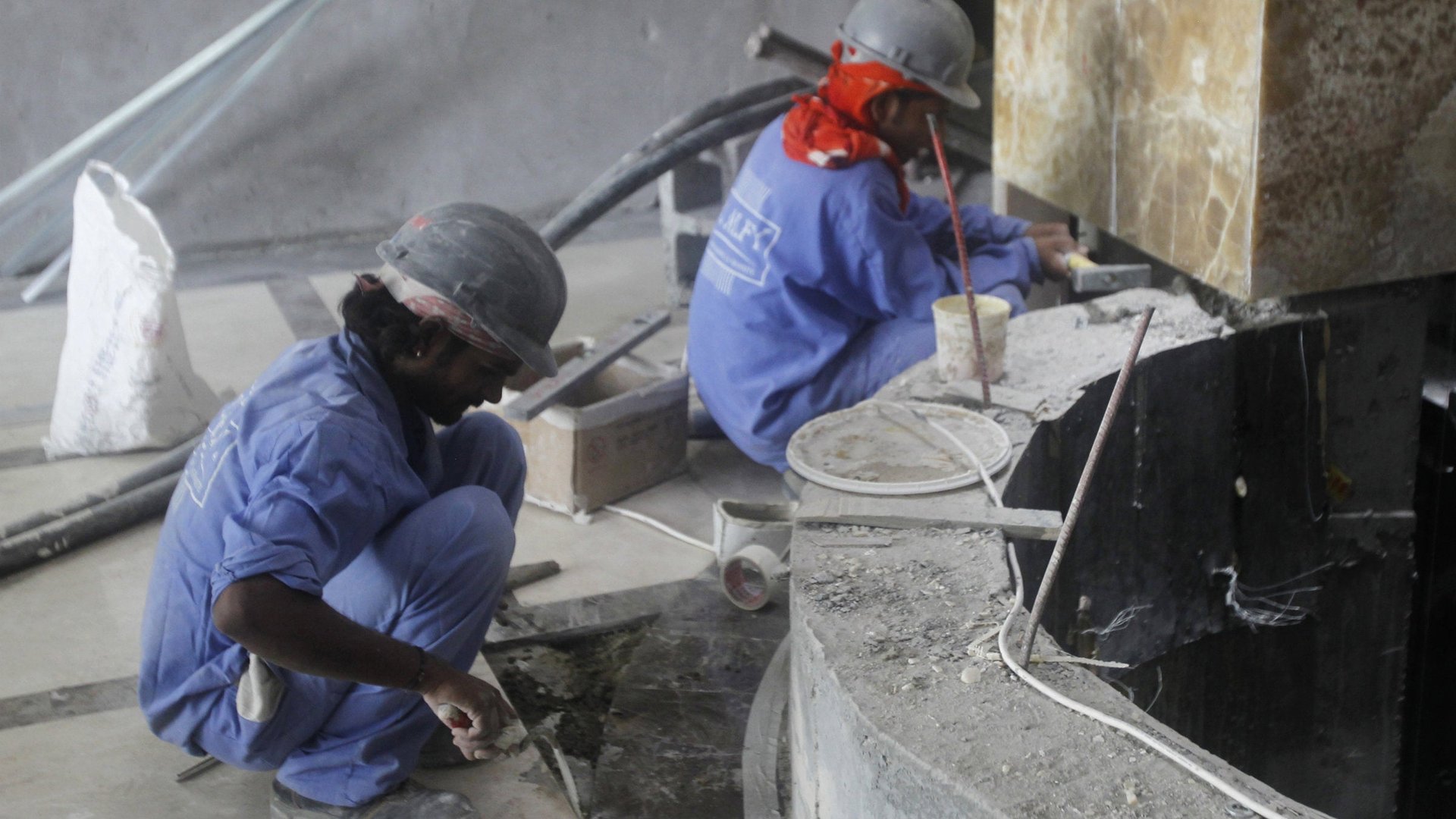Mistreatment of Nepali workers in Qatar goes way beyond the World Cup
The Guardian’s shocking story of Nepali migrants held in near-slavery conditions as they work on the infrastructure for the 2022 World Cup in Qatar has highlighted horrible conditions of workers there. Dozens have died from heart failure after toiling for 12-hour shifts in extreme heat, sometimes without access to drinking water.


The Guardian’s shocking story of Nepali migrants held in near-slavery conditions as they work on the infrastructure for the 2022 World Cup in Qatar has highlighted horrible conditions of workers there. Dozens have died from heart failure after toiling for 12-hour shifts in extreme heat, sometimes without access to drinking water.
Even before work began for the World Cup, though, ties between Nepal, one of the world’s poorest countries, and Qatar, one of the richest, were strained because of the way Nepali workers were being mistreated. In July the two countries signed an agreement designed to crack down on Qatari companies that force Nepalis to work without pay after confiscating their passports and identity cards. There are nearly 100,000 Nepalis working in Qatar, mostly as construction workers and housemaids.
Maya Kumari Sharma, the Nepali ambassador, went as far as to call Qatar “an open jail” for the Nepali migrants working there in an interview with the BBC in March. The Qatari government complained, urging Nepal’s foreign minister “to take steps to prevent possible deterioration of bilateral relations between the two countries,” according to the Nepali* news site eKantipur.
Sharma has refused to step down, even after the ruling UCPN-Maoist party reportedly called for her to resign and the Qatari government suggested she would be declared persona non grata and forced to leave the country.
Despite her comments critical of Qatar, Sharma does not have unanimous support from Nepali migrants there. She was criticized in May by a worker named Dipendra Bhetwal for the embassy’s lack of consular support for Nepali migrants, and she subsequently asked the Qatari authorities to have him deported, earning the disapproval of human rights groups like Amnesty International.
The Guardian noted that the Nepali government “seems unwilling to act against mounting evidence of the labour abuses faced by thousands of its citizens.” In March the International Labour Organization alleged that Nepalese officials “were complicit in the trafficking for forced labour of its migrant workers.”
The attention from the Guardian’s story may shine a light on the abysmal conditions for Nepali workers in Qatar, but in fact their numbers are in decline there. In the last year, Malaysia has become the top destination for Nepali migrants, “as state-owned companies exhibited a preference for Nepali workers over others,” according to WHO. That didn’t stop the Malaysian government from detaining scores of Nepalis this month in a crackdown on illegal immigration.
*An earlier version of this post incorrectly identified eKantipur as Tibetan; thanks to Bibek Bhandari for spotting the error.